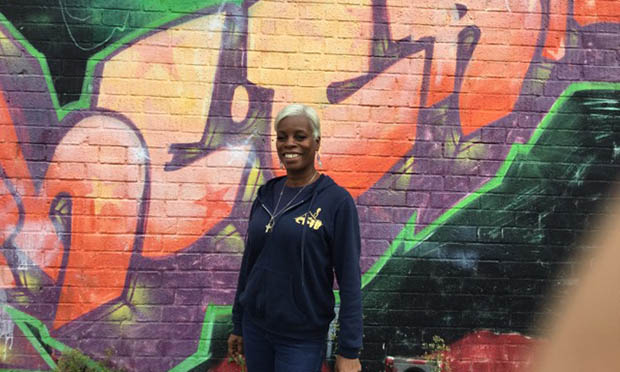Campaigners call for ‘urgent’ reform of Hackney’s school exclusion policies

The Crib founder Janette Collins has been supporting families
Campaigners have demanded “urgent” reform of Hackney’s “discriminatory” and “humiliating” school exclusion policies.
At last week’s full council, families stood beside Independent Socialist Cllr Claudia Turbet-Delof to present their deputation.
Reminding councillors of the 2,755 suspensions and 33 exclusions in the 2022/23 academic year, they said it is “time to redirect time, energy and resources to those who need it”.
Hackney ranks among the top three inner London boroughs with the highest percentage of permanent exclusions.
Campaigners called out schools for failing to meet students’ needs.
“Schools are not prisons,” said retired teacher and author Juliet Coley, “so when did the function of schools move to control, confrontation and confinement?”
Coley said schools have “failed” to follow the council’s “no need to exclude” policy, which was circulated in 2015.
“Who is evaluating and reviewing the school suspensions?” she asked.
“Persistent disruptive behaviour” is the number one reason children in Hackney are suspended or excluded.
“They’re not bringing in knives, or being violent,” said Coley. “It’s for things like talking in line or coming into school without their hair done correctly.”
She spoke of one child who missed her maths exam because she was sent to isolation for wearing false eyelashes.
The campaigners shared stories of children who have been suspended and are subsequently not receiving appropriate support from their schools.
They spoke of the damage to children’s mental health, and of cases in which a child has self-harmed or tried to take their own life.
“My daughter wants to learn,” said one mother, “but every day she comes home angry and upset… she’s not herself anymore.”
The parent has been supported by Janette Collins and her youth organisation The Crib, having failed to receive any assistance from the Hackney Council’s Learning Trust.
Collins said: “There are [council] support systems out there, but they’re very difficult to access, so we’re finding parents are coming to us instead of the council.”
Anntoinette Bramble, deputy mayor and cabinet member for education, young people and children’s social care, admitted “there are things we have to learn”.
She said this is especially true when it comes to supporting children through the transition from primary to secondary school and children with special educational needs and disabilities.
“I know you, I meet you… and you’ve heard me say time and time again, exclusion rates are not acceptable,” Bramble added.
“[The council] doesn’t have the power to tell every school which policies to have and how to inform them,” she continued, explaining that academies are answerable to the Department for Education, not local government.
She said she’s spoken at City Hall about searching for “a way to find consequences for children and young people without totally disrupting their education”.
She has worked with Diane Abbott, MP for Hackney North and Stoke Newington, to organise a round-table discussion at parliament.
Bramble said progress is being made in the “reengagement unit”, whose council officers work with young people threatened with exclusion.
“We’ve worked with 300 children,”, explained Bramble, “and 97 per cent of them are back in school.”
